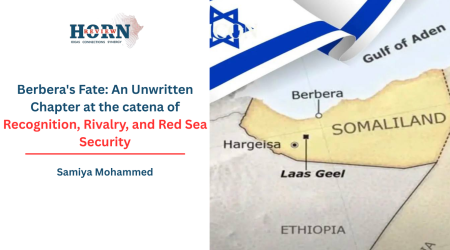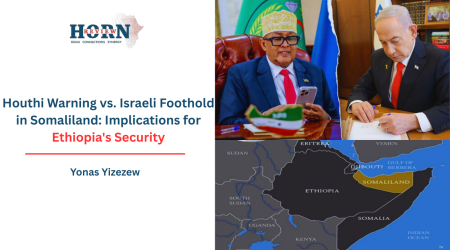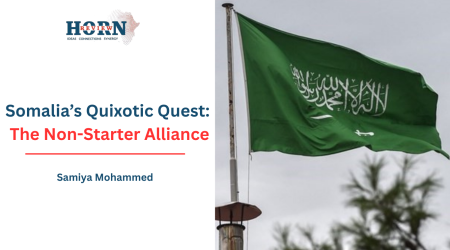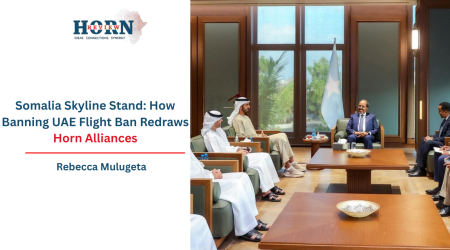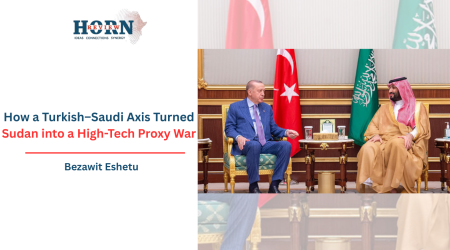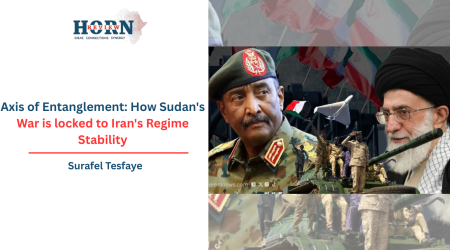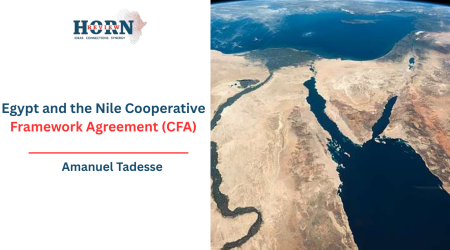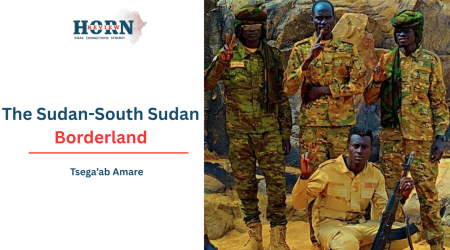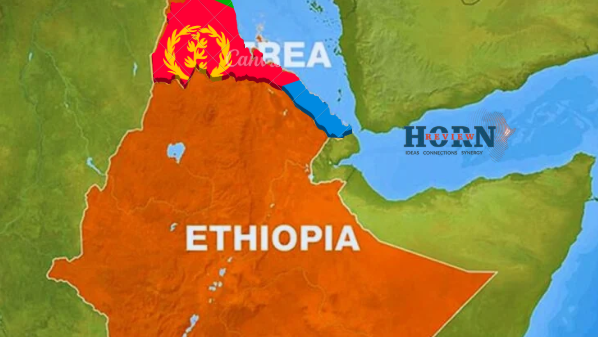
20
Jun
The Silent Scream: Eritrea’s Machinery of Repression and the World’s Complicit Gaze
The words of Mohamed Abdelsalam Babiker, the UN Special Rapporteur on human rights in Eritrea, hang heavy with unvarnished truth “The rights of the Eritrean people are not a matter of negotiation or political convenience they are universal, inalienable” . Yet in Eritrea, these rights exist only as ghosts invoked in principle, obliterated in practice. For over three decades, President Isaias Afewerki has transformed Africa’s youngest nation into a dystopian laboratory of control, where silence is enforced by terror, dissent is vanished into darkness, and an entire population is held hostage to the whims of a regime that treats humans as disposable cogs in its machine of perpetual fear.
Eritrea operates not as a nation but as a nation as barracks. The cornerstone of this oppression is the system of indefinite national service, a euphemism for state-sanctioned slavery. Though legally capped at 18 months, conscription extends for decades, with citizens drafted into forced labor under brutal military command. Soldiers toil for paltry pay, endure arbitrary punishment, and face conditions the UN labels “torture” and “forced labor”. Children are funneled directly into this machinery final-year students are shipped to the Sawa military camp, trading education for indoctrination and rifles. This isn’t national service, it is institutionalized vampirism, bleeding the youth dry to feed the regime’s insatiable need for control.
Beyond the barracks lies an even more sinister reality the vaporization of dissent. Eritrea has perfected the art of making people disappear. The G-15 eleven senior officials who dared advocate for democracy in 2001 were swallowed by the regime’s gulags. Their whereabouts? Unknown. Their fate? Unacknowledged . Journalists? All independent media vanished in 2001. Of the ten arrested that year, not one has been seen again. Even former Finance Minister Berhane Abrehe died in 2024 after six years of incommunicado detention his crime? Publishing a book urging reform.
The regime’s terror extends into bedrooms and chapels. Religious persecution is systematic 110 Christians, including children, were arrested in early 2024 alone. Eighty five year-old Jehovah’s Witnesses grandmothers are dragged from their homes. Sixty-three Witnesses rot in cells for no crime but faith . The state recognizes only four religions all others are “unrecognized” a death sentence for conscience.
Afewerki’s tyranny transcends borders. The regime practices transnational repression with chilling efficiency. Embassies strong-arm diaspora Eritreans into paying a coercive “2% tax” and signing “repentance forms” for consular services. Dissidents abroad face surveillance, intimidation, and orchestrated violence. When government-sponsored “cultural festivals” in Europe are met with protests, regime loyalists often directed by diplomats attack demonstrators, turning streets of Berlin or Stockholm into battlegrounds . The message is clear no one escapes the long arm of the state.
Eritrea’s ruthlessness isn’t confined within its borders. Its troops occupy parts of Ethiopia’s Tigray region in blatant violation of the 2022 Cessation of Hostilities Agreement. There, they commit atrocities with impunity mass rape, livestock pillage, civilian abductions . These violations are meticulously documented yet Eritrea ignores UN demands for withdrawal, mocking the very concept of accountability while its soldiers fuel regional instability.
The regime’s contempt for human rights is matched only by its diplomatic duplicity. Eritrea sits on the UN Human Rights Council while refusing access to every UN human rights expert a grotesque . It ignores rulings from the African Commission on Human Rights, dismisses treaty bodies, and treats its Universal Periodic Review commitments as empty theater.
When confronted at the Human Rights Council, Eritrea deflects with martyrology and accusations of “Western conspiracy,” as if the graves of its victims are merely props in a political melodrama.
What makes Eritrea’s dystopia uniquely grotesque is its despotism. This isn’t chaos, it is order imposed through terror. The regime could end conscription tomorrow it chooses not to. It could release political prisoners it prefers to let them die unnamed in dungeons. It could permit a single independent newspaper it opts for total informational blackout. Every violation is deliberate. Every silence is engineered.
in the darkness, embers glow. Eritrean refugees over 500,000 strong, 15% of the population risk death crossing deserts and seas to escape . Their exodus is itself an act of defiance. Human rights groups like Eritrea Focus and Defend Defenders amplify silenced voices from the underground . The Special Rapporteur, though barred from the country, compiles evidence for the day of reckoning.
The international community must shed its complacency. Targeted sanctions against regime architects, universal jurisdiction prosecutions for torturers, and asylum for defectors are no options they are moral imperatives. The EU’s call for investigations into Tigray crimes must evolve into concrete action. The UN must treat Eritrea’s Council membership as the farce it is and demand access for monitors.
Isaias Afewerki has built an edifice of fear, but history a warning to tyrants no silence lasts forever. The cries of the G-15, the journalists, the conscripts, the raped, the disappeared these are not erased. They accumulate in the ledgers of justice, awaiting the hour of audit. When that hour comes and come it will the world will bear witness not to a regime’s strength, but to its unspeakable cowardice the terror of rulers who knew their only legacy would be infamy.
The Eritrean people have not been broken. They have been buried alive. And buried things have a way of rising.
By Samiya Mohammed,Researcher,Horn Review


